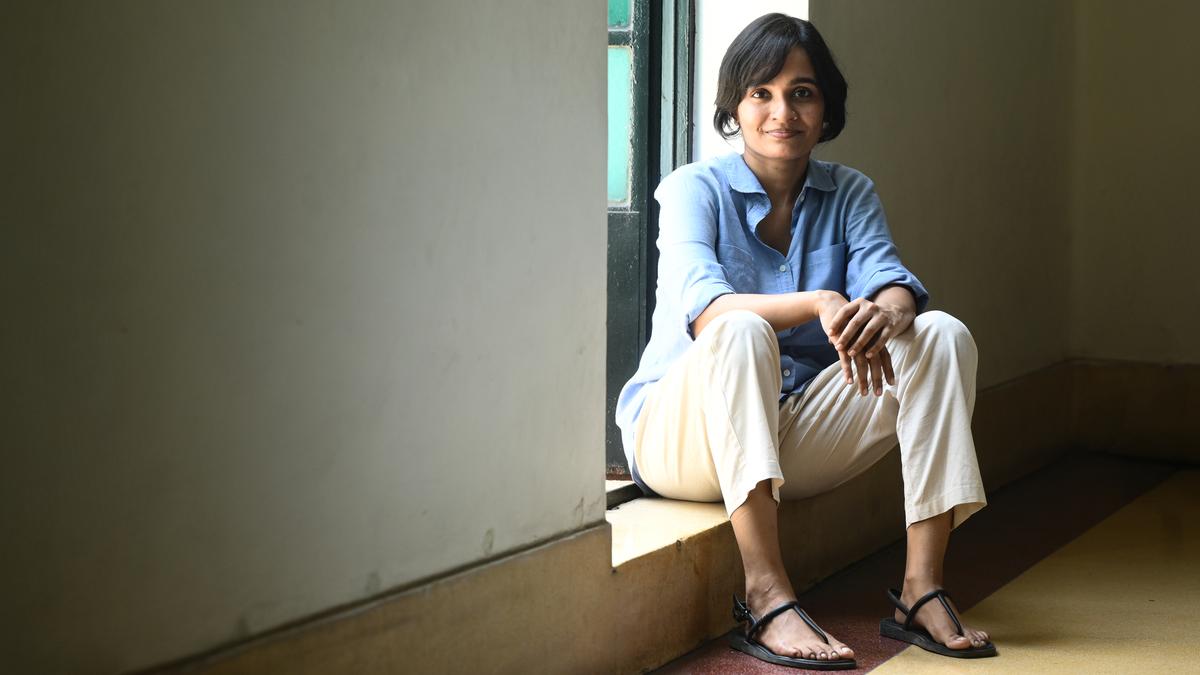
It’s a bad, bad world
The Hindu
Director Varsha Bharath who is all set to mark her debut with ‘Bad Girl,’ which has already caused chatter on romance and feminism, speaks to The Hindu on working with Vetri Maaran, Anurag Kashyap, her cast, and a new language of Tamil cinema
Director Varsha Bharath makes two declarations as she hurriedly walks in for our interview. Pointing to her feet that are currently nestled in a pair of flimsy pink flip-flops, she says, “A friend’s dog chewed through the shoes I was meant to wear.” Afterwards, she states that she is having a bout of nerves. “It is my first interview,” she states.
Over the next 45 minutes though, she settles into her chair with legs folded. Her shoulders drop and clarity takes over. Varsha begins telling the story of Ramya, the protagonist of the film; the director’s trials and tribulations with love on Yahoo messenger; working with directors like Vetri Maaran and Anurag Kashyap; and her stellar cast and crew.
“Bad Girl is a film about a girl who is just trying to be. It is a soft movie. It would be nice if we could all chill a little, no,” she says.
Three weeks since the release of her debut Tamil film Bad Girl’s teaser, Varsha has been subject to a flurry of opinions. Elaborate YouTube videos have been made dissecting, and mostly criticising, the two-minute cut of the protagonist Ramya’s (essayed by Anjali Sivaraman) life. Conversation online has said that the film promotes underage drinking and bashes the Tamil Brahmin community for being an oppressive caste group.
Varsha is new to social media and has yet to understand the dissonance. She is mostly appalled because the chatter online misjudges what is plain and apparent. “When the conversation happened online, I wondered if I had not cut the teaser correctly. Tell me something, can you not see that she is grown up when she drinks? Not that I am glorifying it and saying things like ‘just because a man can drink, I can drink too’. I really love chick flicks and that is what I have made too,” she says.
What is a chick flick though? Has it not been historically used in Hollywood to speak of dumb entertainers about women and their lives? “During the COVID-19 lockdown, I realised that the only things I wanted to watch were stories about women. This was shocking to me because I was a huge Ajith Kumar fan growing up. I was a bro. Over time though, these chick flicks posed many questions about life and had major philosophical depth. It was not just about women who ate cupcakes without gaining weight,” she says.
As we speak, Varsha tends to meditate on her growing up in Chennai. Looking inward has been an important part of her writing process. She claims that she was a bad student who disliked Physics, Chemistry and Mathematics. In college, she chose to do a course in Electronic Media as she felt it would be easy. “I had the habit of quitting everything within a month. When I told my friend that I had joined Vetri Maaran’s set as an AD, he said ‘I give it one month’. But it was on the sets when I truly felt alive. I stuck around and didn’t quit. In a film set, I felt like I belonged,” she says. “I don’t know how he picked me to be his assistant based on a now-embarrassing short film I made in college but he claims that he saw potential,” she says, laughing. Subsequently, she went on to work on some important films in Vetri Maaran’s filmography including Visaaranai, Udhayam NH4 and Vada Chennai.













